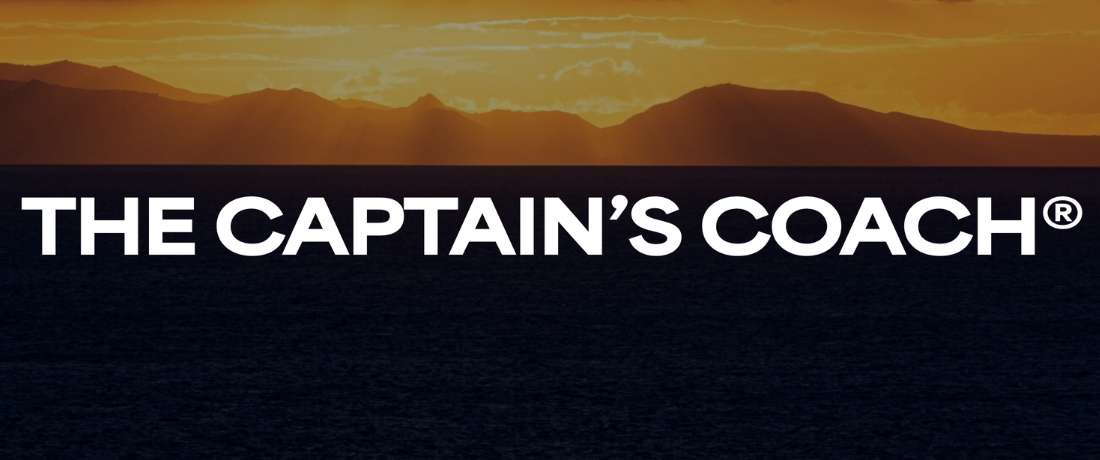We asked The Captain’s Coach John Beavis for his thoughts on the some of the challenges that currently face seafarers (and senior seafarers). Here’s what he had to say.
Aside from the challenges of the natural environment, the revolving door of geopolitical uncertainty, and separation from their support network, a concept now alien to most, perhaps the biggest challenge for our senior seafarers is finding balance and even pace.
Whether it’s balancing the need to develop their own capability with those around them, securing a sense of sustainability, so that they remain a safe pair of hands at the helm, or retaining a sense of proportion to support their emotional wellbeing, the world around them doesn’t – and can’t afford to – shut down. They become burnt out.
More than ever, we want (and need) them to get the best from themselves, get the best from their teams, and keep the industry as alluring as it once was to a new and vibrant generation. One whom have evolving expectations, and one whom value money and time in almost equal measure.
Adapt or die, we need to remain competitive in the new recruitment landscape. And we need to think more holistically. AI will not save all!
From my experience of coaching Captains and the leaders of high performing teams there have been three recurring themes that if seen in unison and brought into play form the basis of a recipe for success in the maritime arena.
1. Development
Whether it’s accruing experience to feel a little more comfortable in the chair, acquiring tools and techniques to align the team while fostering their talents, or implementing initiatives and managing regulatory change, you can swiftly see there’s a lot to juggle. So for our Senior Seafarers there’s a delicate dance to be learnt and we need to recognise those steps take time to master.
2. Sustainability
It’s also perhaps no surprise that one of the most common themes (and concerns) amongst my Coachees is that of safeguarding their own sustainability.
By that we don’t just mean physical rest or sleep. But meaningful moments and time set aside to rest their brains and recharge their mind. It’s a muscle that they (and we) rely upon to flex – and rest – in order perform their role capably, diligently, and safely. Day in and day out.
Do worse things happen at sea? Well sometimes. So when circumstance dictates, we need that same muscle to shift gear and pivot from a “Business as Usual” mindset to one of crisis management. One that demands no less than a calm, considered approach to see through the mist of misinformation with clarity, enabling them to direct the team with calculated, incisive, and often lifesaving, decisions.
3. Wellbeing
Balancing daily duties, directing teams, overseeing operations, and on call 24/7, you can appreciate that securing sufficient rest, recuperation, and some degree of recreation, is more than simply a challenge. It’s hard, if not impossible, and something (or someone) usually must give.
The challenge is clear, and the key to all of the above, is finding balance between the three.
This is why we need to acknowledge the need to invest in maintaining our teams before they break, in the same way that we invest in maintaining our machinery before it fails. And in appreciating both and investing accordingly we have a golden opportunity to pave the way to providing the pulse in the blue economy.
We asked John a few specific questions regarding how to best support and help seafarers today and these are some of his thoughts.
How do the support needs of senior seafarers differ from those of younger/junior ones?
This depends greatly upon context and the Coachee’s own personal situation.
Within the Coaching for Captains® I’m working with soon to be or recently promoted Captains and Chief Engineers. Compared to those I support within the Sounding Board Service they tend to be younger and the themes we discuss differ. It’s not unusual to be covering ground that spans awareness and self-awareness, beliefs and values, communication, confidence, leading self, people and perspectives.
For the more senior seafarers subjects circle change, communication, and culture. They sometimes straddle the personal arena too, especially when considering a move ashore and / or career pivot.
Either way, while the themes tend to differ, both have needs that link to development, sustainability and wellbeing.
Is there a technology gap between older and younger seafarers – either in vessel operations of the ship or in the use of personal technology?
It’s not something I’ve detected. That said, what I have observed are ways we use communication platforms. While some tend to engage on a F2F as much as possible, younger candidates are favouring digital means. While each have their merits, from experience I feel the gift is to develop a sense of which mode to use when.
What else could be done to encourage more seafarers with experience to stay onboard rather than coming ashore?
Certainty and balance.
Certainty or a lack of is one of the most common causes of consternation within my Coachee’s. Not knowing exactly the duration of their contract can often cause them as much stress as handling a relatively major incident.
This certainly doesn’t apply to all, but for some there are golden opportunities to reduce churn, and in turn commercial risk, by building greater redundancy into the rotation schedule and tightening up on scheduling. This will save them both money and time, and place them in a favourable position in the eyes of those either considering a career at sea, or cross decking from one operator to another.
We look forward to seeing John tackle these questions and more at the annual Maritime People & Culture conference in May. Find out what’s on the agenda here.

